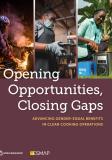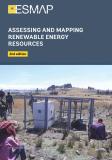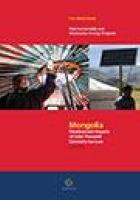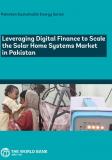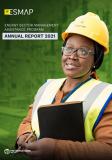Publications
Mongolia is a vast landlocked country with a relatively small population. Other than those living in the capital city and a few urban centers, the rest of its citizens (about 35 percent or one million people) are geographically disbursed throughout the rural countryside. Among them about three quarters are nomadic herders living in portable tents (gers). Given the immense logistical and climatic challenges, rural electrification was largely undeveloped until the Government launched the National 100,000 Solar Ger Electrification Program in 1999. The World Bank-assisted Renewable Energy and Rural Electricity Access Project (REAP) was conceived in 2006 to help the Government revitalize the 100k Program and remove other barriers to rural electrification. The ultimate objective of the project was to increase electricity access and improve the reliability of services in off-grid soum centers and amongst the herder population. The main portion of this report is divided into two chapters (Chapters 2-3). Chapter 2 is a brief description of the two beneficiary surveys carried out after REAP was completed. It includes the methodologies used, the survey processes, and the survey's areas of focus. Chapter 3 presents the main results and findings of the surveys based on qualitative and quantitative information and data collected. They include three main aspects: use and sustainability of REAP portable photovoltaic solar home systems; immediate impacts of the resulting changes in energy use patterns; and where the availability and use of electricity have the most impact on the nomadic herder community's quality of life and development.
World Bank. 2014. Mongolia : Development Impacts of Solar-Powered Electricity Services. Asia Sustainable and Alternative Energy Program;. Washington, DC. © World Bank. License: CC BY 3.0 IGO. https://openknowledge.worldbank.org/handle/10986/20081
